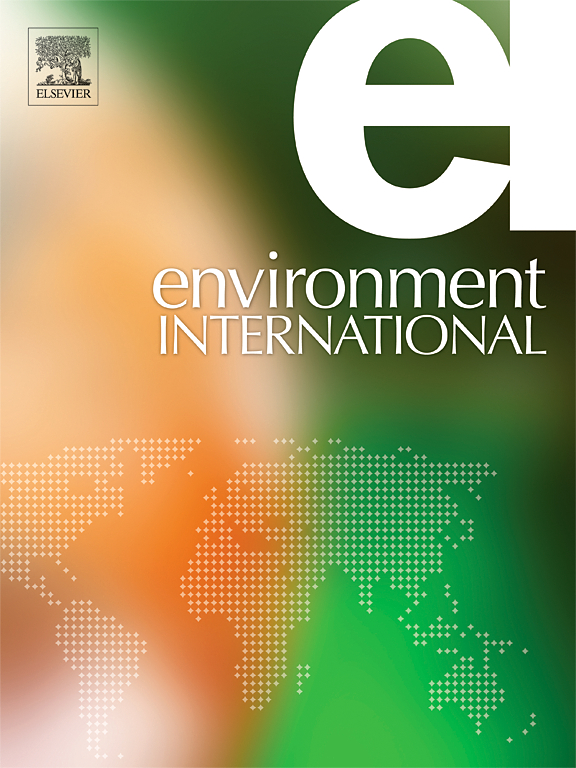重金属的表观遗传毒性--对胚胎干细胞的影响
IF 10.3
1区 环境科学与生态学
Q1 ENVIRONMENTAL SCIENCES
引用次数: 0
摘要
接触重金属(如镉、镍、汞、砷、铅和六价铬)与发育过程失调(如干细胞分化受损)有关。重金属是众所周知的表观基因组修饰剂。干细胞和祖细胞特别容易受到潜在有毒金属的影响,因为这些细胞的正常功能依赖于表观遗传重编程。因此,接触金属会损害干细胞和祖细胞的增殖、多能性、干性和分化。在这篇综述中,我们全面总结了重金属对干细胞表观遗传学影响的现有证据,尤其侧重于DNA甲基化和组蛋白修饰。此外,我们还探讨了导致这些表观遗传变化的潜在机制。本综述概述了重金属暴露诱导的表观基因组改变、其基本机制以及这些改变对干细胞功能的影响,为进一步研究毒理学与发育生物学重叠的这一关键领域奠定了基础。本文章由计算机程序翻译,如有差异,请以英文原文为准。
Epigenetic toxicity of heavy metals − implications for embryonic stem cells
Exposure to heavy metals, such as cadmium, nickel, mercury, arsenic, lead, and hexavalent chromium has been linked to dysregulated developmental processes, such as impaired stem cell differentiation. Heavy metals are well-known modifiers of the epigenome. Stem and progenitor cells are particularly vulnerable to exposure to potentially toxic metals since these cells rely on epigenetic reprogramming for their proper functioning. Therefore, exposure to metals can impair stem and progenitor cell proliferation, pluripotency, stemness, and differentiation. In this review, we provide a comprehensive summary of current evidence on the epigenetic effects of heavy metals on stem cells, focusing particularly on DNA methylation and histone modifications. Moreover, we explore the underlying mechanisms responsible for these epigenetic changes. By providing an overview of heavy metal exposure-induced alterations to the epigenome, the underlying mechanisms, and the consequences of those alterations on stem cell function, this review provides a foundation for further research in this critical area of overlap between toxicology and developmental biology.
求助全文
通过发布文献求助,成功后即可免费获取论文全文。
去求助
来源期刊

Environment International
环境科学-环境科学
CiteScore
21.90
自引率
3.40%
发文量
734
审稿时长
2.8 months
期刊介绍:
Environmental Health publishes manuscripts focusing on critical aspects of environmental and occupational medicine, including studies in toxicology and epidemiology, to illuminate the human health implications of exposure to environmental hazards. The journal adopts an open-access model and practices open peer review.
It caters to scientists and practitioners across all environmental science domains, directly or indirectly impacting human health and well-being. With a commitment to enhancing the prevention of environmentally-related health risks, Environmental Health serves as a public health journal for the community and scientists engaged in matters of public health significance concerning the environment.
 求助内容:
求助内容: 应助结果提醒方式:
应助结果提醒方式:


